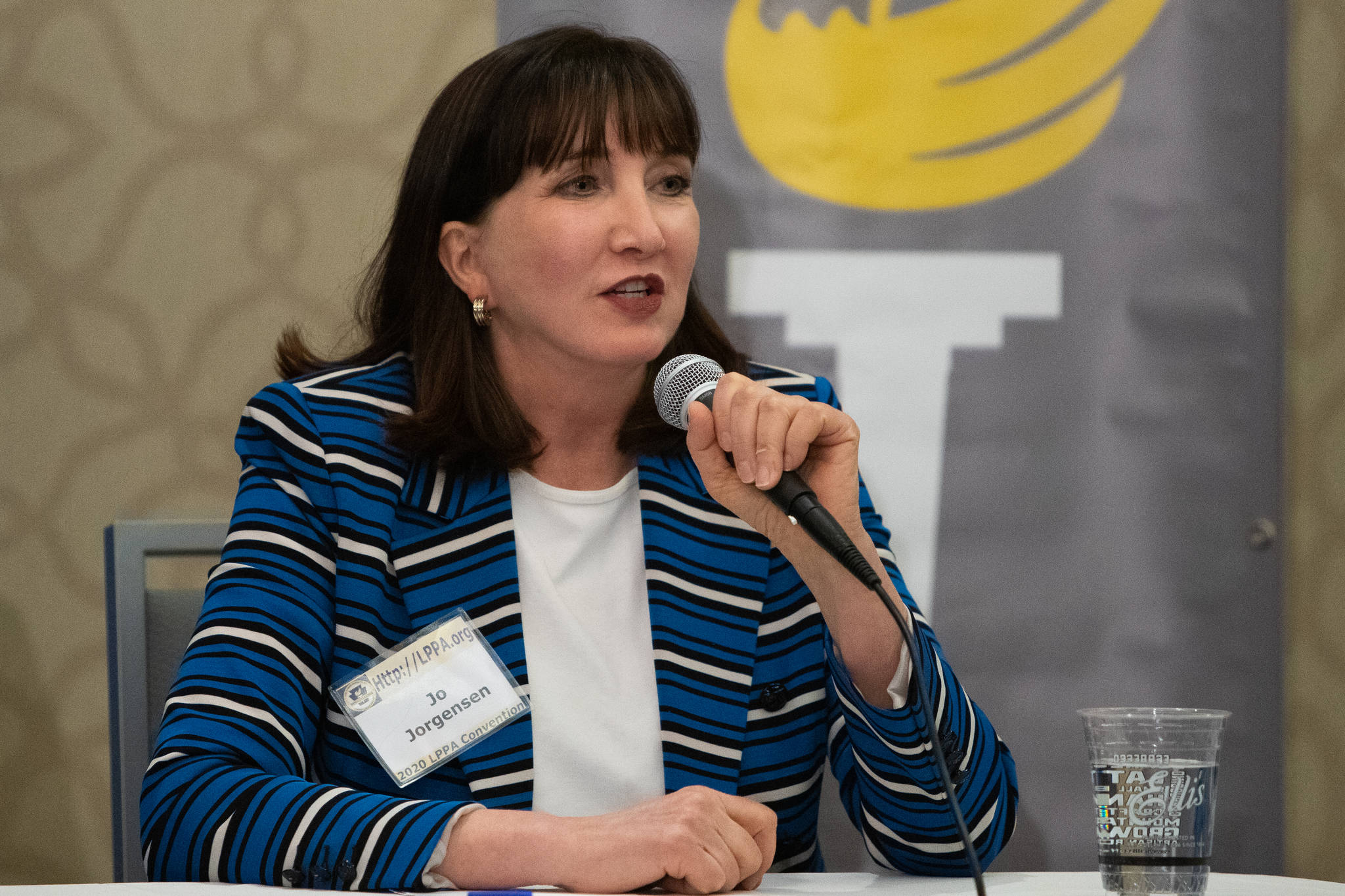Alaskans’ rugged individualism fits with what the Libertarian Party has to offer this election season, said to Jo Jorgensen, the party’s presidential candidate.
“The federal government is too big, too nosy, too, bossy and it often hurts those it’s trying to help,” Jorgensen said Friday in an interview with the Empire. “Alaskans have just a wonderful sense of individualism I can’t imagine they would enjoy the government getting into everything.”
Recent voting results suggest the Libertarian Party is proportionally more popular in Alaska than it is nationwide.
In 2016, Libertarian candidate Gary Johnson received 5.9% of the vote in Alaska, according to the New York Times’ election results. President Donald Trump won the state with 51.3% of the vote and Hillary Clinton pulled in 36.6% of the vote.
Johnson did almost twice as well in Alaska as he did nationally. Johnson received 3.3% of the total popular vote, according to certified election results. Clinton received 48.2% of the national popular vote. Trump received 46.1% of the popular vote, but he received more electoral votes and won the presidency.
The “one-size-fits-all” approach taken by the government limits choice and drives quality down, Jorgensen argued, pointing to public education as an example.
“There’s no need to have the federal government get involved in education,” she said. “The quality of education has gone down, it’s not like we have choices of schools.”
Asked about public services many Alaskans rely on such as the Alaska Marine Highway System and the Power Cost Equalization program, Jorgensen said the free market would provide a more effective solution than a government ever could.
[Alaska Natives say their voices are being ignored in ferry reshaping group]
“(The federal government has) to get the money from somewhere,” she said. “People in Alaska are paying high federal income tax to Washington, D.C., and then D.C. turns around and sends it back to Alaska.”
But the party’s free-market approach doesn’t mean no services, according to Jon Watts, party chair for the Alaska Libertarian Party, it just changes the way in which they’re provided.
“It’s not that those kinds of services and supports shouldn’t exist on an individual basis,” Watts said. “You get rid of the bureaucracy and the middle man and you work on a personal relationship.”
The government creates monopolies which drive up prices and it can be difficult to apply government solutions to local needs, Watts said, whereas the competition of the free market finds the best way to allocate money.
“We should do things voluntarily, rather than through coercive hierarchies. There’s been plenty of service organizations that went away when government services replaced them,” Watts said.
Jorgensen, Watts said, would do her best to remove those hierarchies, allowing Alaskans to better create their own solutions to the unique problems they face.
“(Jorgensen) would look at things going from a dependent state, of being the only choice you have is to accept whatever the government solutions is, to a system to an independent statue to where you have control and can make it your own.” Watts said. “Government creates monopolies. I think Alaskans want to be independent and Jo would find ways to get out of your way.”
• Contact reporter Peter Segall at psegall@juneauempire.com. Follow him on Twitter at @SegallJnoEmpire.

